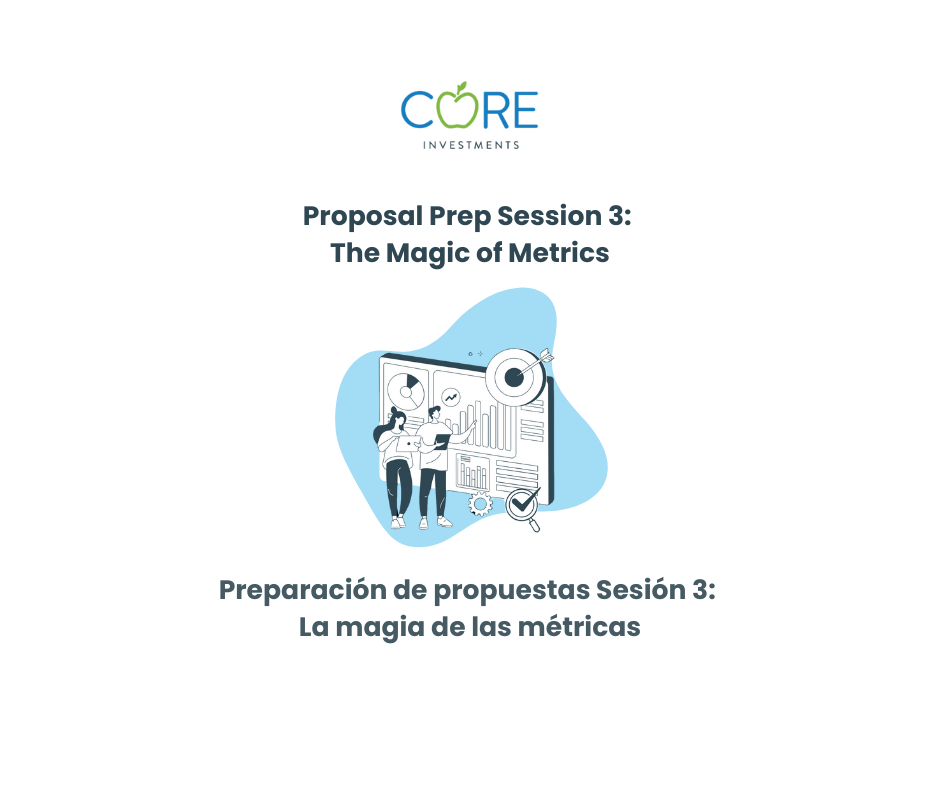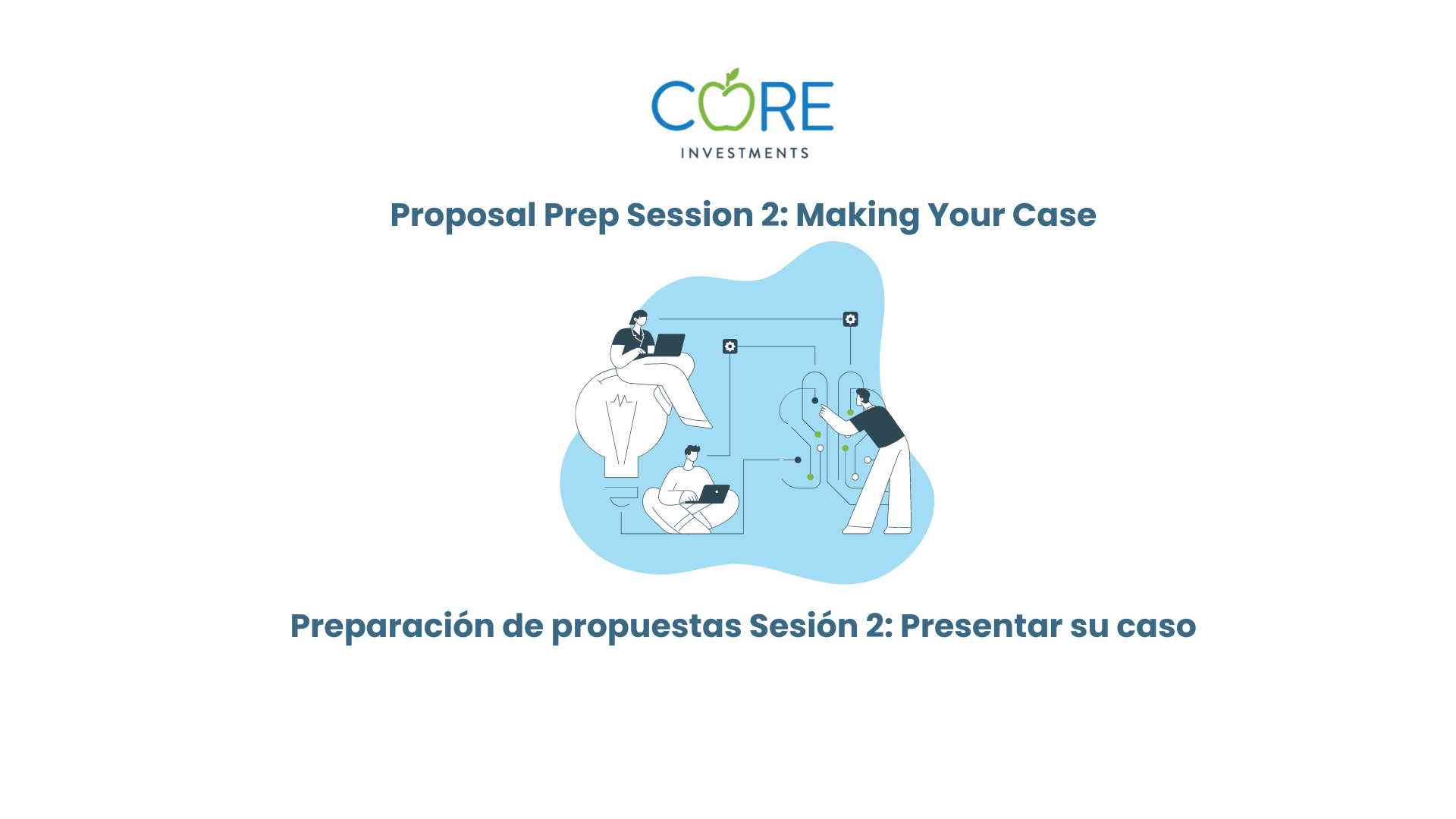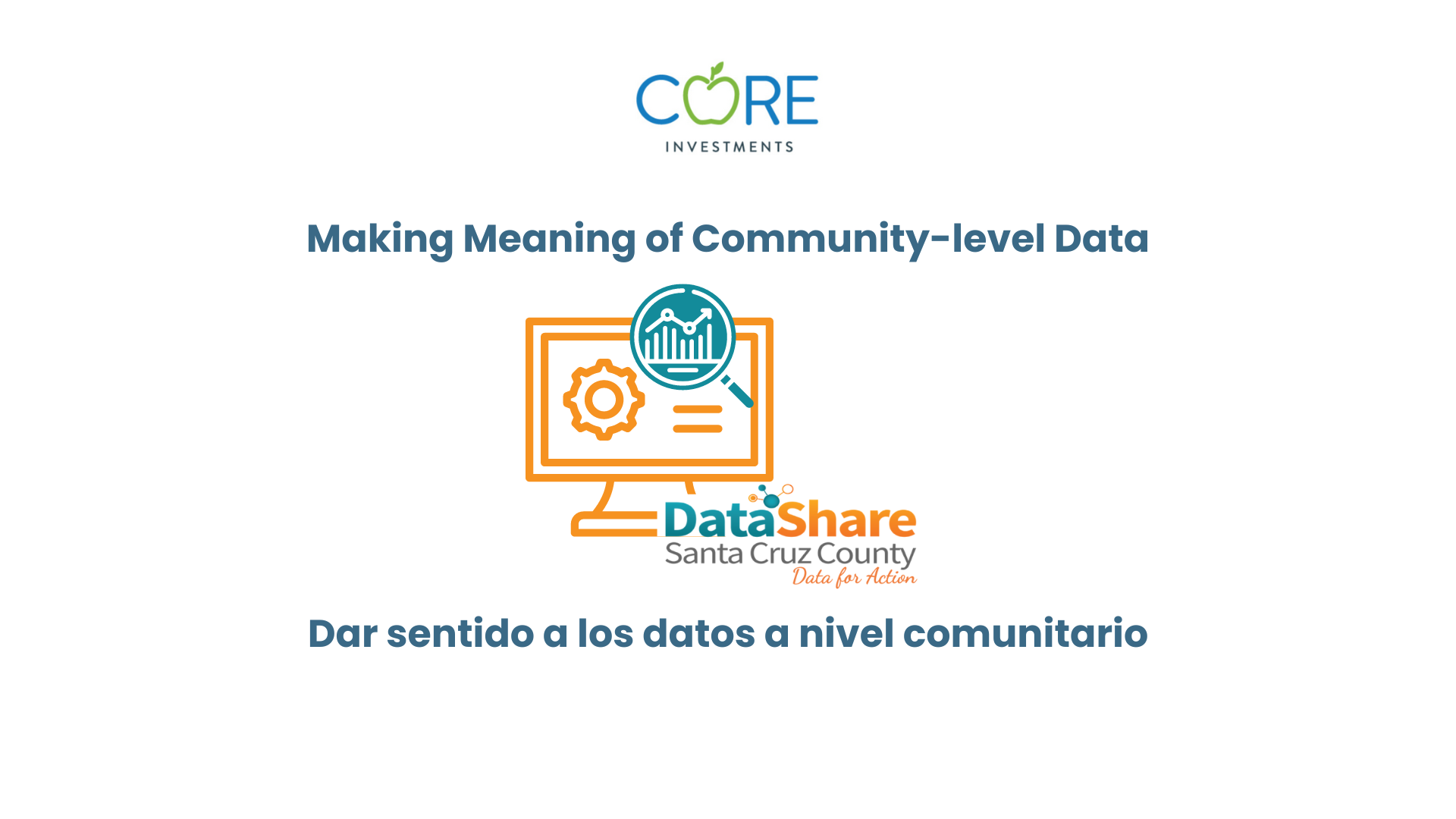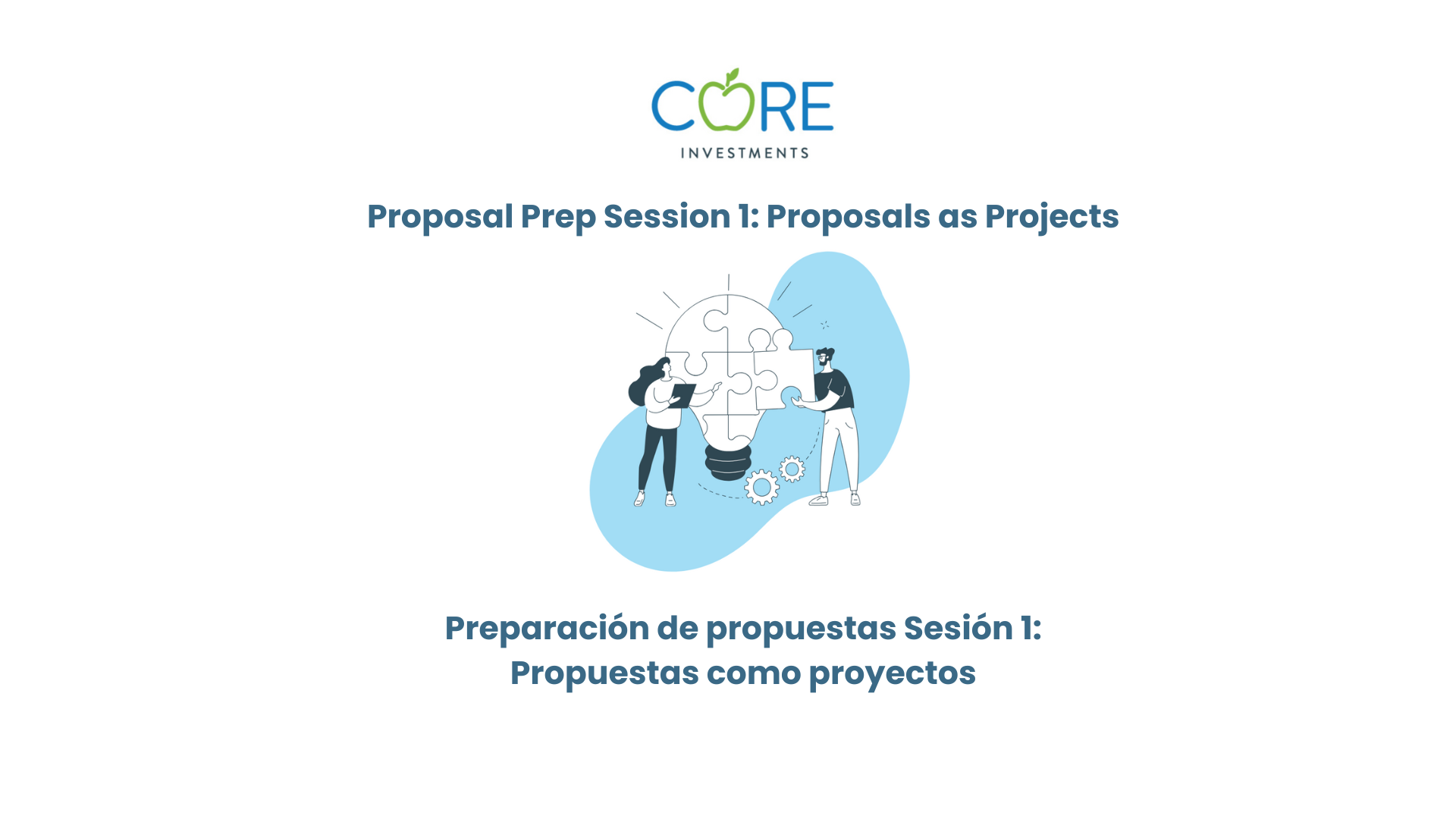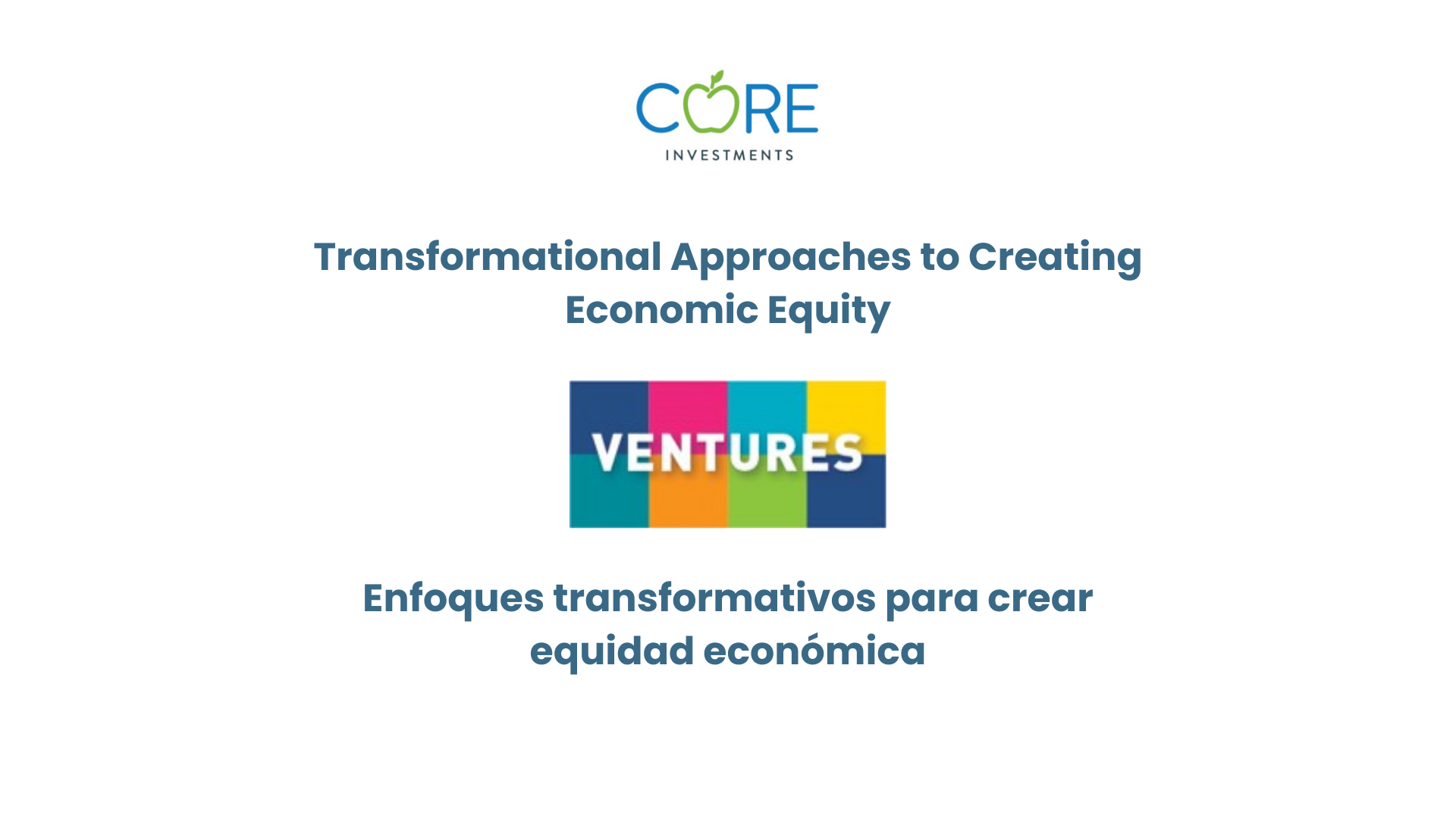
Resources
Resources for Creating Community Change
Sharing resources, ideas, and tools are the heart of CORE’s work. By working across sectors and seeking out people with diverse backgrounds and life experiences, we’ve been able to glean community wisdom and co-create solutions to move our work forward. Now we want to share all that we have learned with you.
We welcome you to explore and use our collection of resources to support your work as you look for new ways to build health, equity, and well-being in your community. And if you have something you’d like to add to our resources page, please get in touch with us. We’d love to hear your ideas!
Tags
- CORE Conditions
- CORE RFP
- CORE Results Menu
- Children & Youth
- Collective Impact
- Community Connectedness
- Community Engagement
- Community Indicators
- Community Resources
- Data Visualization
- DataShare
- Economic Security & Mobility
- Evaluation
- Evidence-based Programs & Practices
- Grants & Funding
- Grantwriting
- Health & Wellness
- Healthy Environments
- Justice Equity Diversity Inclusion
- Lifelong Learning & Education
- Program Planning
- Racial Equity
- Safe & Just Communities
- Stable Affordable Housing & Shelter
- Thriving Families
- Video
Shifting Power at the Table: Values-Based Data and Analysis
Dive into the power of data to drive racial and social justice, gaining tools to analyze data through a racial justice lens and collaborate with communities to build more equitable and inclusive systems.
Domestic Violence Prevention and Response in Santa Cruz County
In recognition of Domestic Violence Awareness Month, learn how two local organizations in Santa Cruz County are committed to addressing domestic violence. Through their initiatives, they support survivors and families, foster community dialogue, and strive to create safe and just communities.
Understanding Demographic Data: A Practical Guide Using Datashare
Demographic data is essential across various fields, shaping decision-making and influencing programs, grants, public health initiatives, and policy. Gain a foundational understanding, explore its significance, and learn to leverage this information effectively to enhance your work.
Introduction to Power Mapping
Curious about how power mapping can support your organization’s goals? Explore this concept and learn about tools that can help you address the root causes of inequities.
A Beginner's Guide to Data Literacy: Practicing with DataShare
Learn how to understand population health data, identify crucial data elements in graphs and visualizations, navigate key data sources on DataShare, and effectively use population health data in your work.
Best Practices for Collection & Sharing of Data: Sexual Orientation, Gender Identity & Gender Expression (SOGIE)
Discover how implementing best practices for SOGIE (Sexual Orientation, Gender Identity & Gender Expression) data collection can increase the impact of your data and programs.
Using Community Indicators for Planning & Public Policy – Practice with DataShare
Learn to identify crucial data elements in graphs and visualizations, navigate key data sources on DataShare, and get tips for using population health data in your work.
Proposal Prep Session 3: The Magic of Metrics
Learn about specific tools such as the CORE Continuum of Results and Evidence, which help consider the various ways projects can illuminate questions about what works, how, and for whom—and how to integrate these concepts into proposal planning.
Proposal Prep Session 2: Making Your Case
Learn about specific tools that help place your proposed projects in a broader context, such as a Theory of Change and Logic Model, as well as other tips, resources, and best practices for making the best case for your work.
Making Meaning of Community-level Data
Learn how to make meaning of community-level data on DataShare (and other sources) when you’re doing planning, evaluation, grantwriting, advocacy, or research.
Proposal Prep Session 1: Proposals as Projects
View ideas and examples on how to treat any proposal like a project. This includes collecting ideas about community and organizational strengths ahead of time, exploring needs and potential partnerships, setting up budget parameters, and documenting capacity in different ways.
Transformational Approaches to Creating Economic Equity
Learn about Ventures’ approach to creating equitable economies by helping individuals understand and use their economic and political power, while also transforming the systems that have historically excluded the Latino community from financial well-being.








